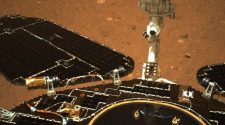BLACKSBURG, Va. (WDBJ) – It’s been 15 years since we’ve had such an active hurricane season and we still have two months to go. 2005 was one of the worst hurricane seasons ever recorded with 27 named storms and 2020 is following a similar pattern.
“Similar in terms of the number of storms,” warning coordination meteorologist, Phil Hysell with the National Weather Service in Blacksburg, said. “Not similar in the intensity of storms.”
Fifteen years ago, the Gulf Coast suffered the wrath of Hurricane Katrina which was one of the most costly and destructive storms in U.S. history. This year, we haven’t seen that level of devastation yet.
“There have been eight hurricanes this year which is above the average of six, but still well below the 15 we saw in 2005,” Hysell said.
Only for the second time ever have the tropics produced more storms than predesignated names.
“We got off to a very fast start this hurricane season,” Hysell said. “In fact, this is the first time in history there have been seven land-falling systems, named systems, that hit the United States before Sept. 1. That’s never happened.”
Though not every named-storm made landfall or caused catastrophic damage, the rate at which these storms are being named is the fastest on record.
“This has been a very active, if not unprecedented hurricane season in the Atlantic basin,” Hysell said. “We are now naming tropical systems using the Greek alphabet which has never before been used since 2005.”
But even in 2005, we didn’t start using the Greek alphabet until late October.
“And here we are in mid-September using those names,” he said.
Typically the peak of hurricane season is around Sept. 10. As we near the end of September, meteorologists at the National Weather Service are cautiously optimistic.
“I think that the pace is going to go down, but we’re still not out of the woods,” Hysell said. “We still have very warm sea surface temperatures. It’s still very wet in west Africa. And we still have La Niña in place. So as long as we still have those ingredients in place, we still need to be vigilant and I think we’ll still see some additional named tropical systems. But probably not at the pace we’ve seen so far this year.”
With so many record-breaking statistics surrounding this year’s hurricane season, WDBJ7 talked to Hysell about what exactly is causing such rapid storm development.
He said there are three main factors.
“One, we are in a La Niña pattern, which means the wind shear in the Atlantic basin is weak and that’s a very favorable environment for tropical systems to form,” Hysell said.
Two, temperatures in the Atlantic are warmer than usual, 1-2° Celsius above average.
“In fact, in August, the sea surface temperatures in the Atlantic were the fourth warmest on record,” Hysell said.
And that warm water acts as fuel for tropical systems to develop and intensify rapidly.
Lastly, Hysell said there’s been a wet monsoon season in west Africa.
“And that moisture coming off Africa, that gets ingested in the waves that approach the United States, has enhanced the potential for thunderstorm development and tropical systems as well,” he explained.
Hysell said that while the intensity of storms are lower than years past, it only takes one to cause significant damage – even here in our hometowns.
“For those of us in Southwest Virginia, what it means for us is that we need to be vigilant, we need to be prepared for potential impacts from tropical systems.”
When there are no major storms on the horizon, that’s the time you want to make sure you and your family have a preparedness plan. Click here for all the ways to prepare for a natural disaster.
WDBJ7 also asked Hysell, hypothetically, what would happen if we run out of Greek letters? He said that’s so unlikely, the National Hurricane Center hasn’t quite decided what to do in that situation. The more pressing question is what to do if a Greek letter-named storm makes landfall with such veracity that it should be retired.
Can and will they retire an alphabet letter? Hysell said we’ll just have to wait and see.
Copyright 2020 WDBJ. All rights reserved.

















